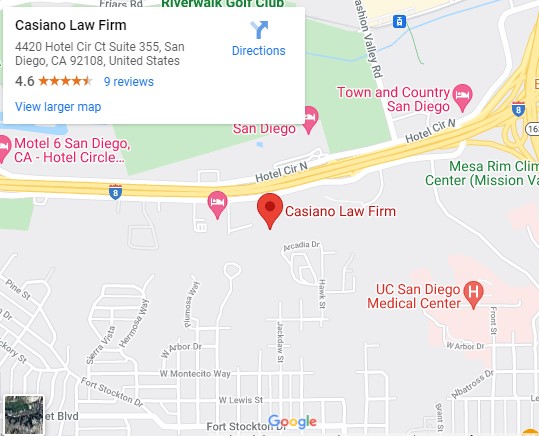Why You Need a Trust in Your Estate Plan
A will is the cornerstone of basic estate planning since it addresses not only your property but also key considerations like who will care for your young children in the event of your death. A will, however, isn’t always the best, final decision for every estate, particularly given the probate process that must take place first before assets are distributed. Here is where a trust comes in handy.
A trust is a legal agreement between you and a third party that says how your assets should be distributed, most often without the intervention of a probate-court. They may be designed to go into effect prior to death, after death, or in the event of incapacitation. Wills, in contrast, only take effect after the death of the will-maker and often need to be validated by a probate-court, which may take longer and cost more money.
Trusts may be set up to achieve a number of objectives. For instance, you could use a trust to transfer property, cut down on inheritance taxes, protect your children’s assets until they turn 18, or help a charity.
Talk to a California estate planning attorney at the Casiano Law Firm to learn more about the pros and cons of trusts.
Ten Reasons Why You Need a Trust In Your Estate Plan
 The estate planning process is made up of two key components: a Last-Will-and-Testament and trusts. While most individuals understand a will’s structure and purpose, trusts may be a bit more difficult to understand. Trusts have a more elaborate legal structure than wills, and with so many different kinds of trusts available, it can be difficult to identify which is best for you, if any.
The estate planning process is made up of two key components: a Last-Will-and-Testament and trusts. While most individuals understand a will’s structure and purpose, trusts may be a bit more difficult to understand. Trusts have a more elaborate legal structure than wills, and with so many different kinds of trusts available, it can be difficult to identify which is best for you, if any.
There are several reasons why you should include a trust as one of the instruments in your estate planning to guarantee that your assets are handled in the manner you want after your death. Some of the most common reasons are as follows:
- Trusts can help you avoid probate court.
- Certain trusts can help in reducing your estate taxes.
- Trusts provide you with more control over your assets.
- Low maintenance.
- In a worst-case scenario, trusts can help by protecting your loved ones.
- Trusts can help children with special needs because of the way they are set up.
- Trusts are an effective way to divide complex assets.
- With a Trust, you can be sure that every family member is taken care of.
- Trusts can help you avoid guardianship if you become incapacitated.
- Trusts can protect beneficiaries from creditors or a court-ordered property division on divorce.
Avoid Probate-Court
One of the most important reasons for estate planning is to save your loved ones from long probate-court hearings. Trusts can help your estate avoid this process. This shields your loved ones from the hardships of court during an already difficult period. There are also various expenses involved with the probate-court, like attorney fees and court fees, that a complete estate plan can help you avoid.
Reduce Your Estate Taxes
Trusts are an excellent way to minimize, and, in some instances, eliminate estate taxes. Essentially, you can lower your overall taxable estate by moving assets into trusts. Though there are many different kinds of trusts, practically all of them include tax planning.
Retain Control of Your Assets
A trust gives you an amount of power over your estate that a will does not. The trust’s structure enables you to choose how and when your assets are distributed. If you have young kids, this could be a great way to make sure they don’t get their inheritance all at once. Trusts can be established with certain life events in mind, enabling children to receive money after graduating from high school, college, or even marriage.
Low Maintenance Estate Planning
They are generally low maintenance after you have taken the time to create them. While your estate plan may need to be updated as a result of new events in life (like the birth of a child or the purchase of a brand new asset), trusts are rarely amended.
Prepare for the Worst-case Scenario
Although no one likes to consider the worst-case scenario, life may occasionally interfere. Estate planning is one of the most important things you can do to protect yourself and your loved ones if you become unable to care for yourself or them at the end of your life. Trusts could help guarantee that your loved ones are cared for if you become disabled.
Gives Special Needs Children Extra Care
If you have a special needs child or a child with long-term medical issues, establishing a trust can provide additional protection after you die. Trusts can be established to give your child long-term financial help. There are also many kinds of trusts that may help you prepare differently for each child’s needs.
Fairly Divide Assets
As you start estate planning, you might discover that some assets are more difficult to divide among your beneficiaries than others. Trusts are one option for directing the distribution of more complex assets after your death. Trusts might be a wonderful option to split up a family business or a vacation house that you do not wish to leave with one person.
Include Family Protective Measures
Trusts are one way to ensure that your spouse and children are cared for after your death. This means that distributing assets after divorce or remarriage might become more complicated. Establishing a trust ensures that your spouse or children get their rightful inheritance, regardless of whether they remarry or their family structure changes in the future.
The Different Types of Trusts
- Trusts for children
- Special needs trust
- Bypass trust
- Express trust
- Charitable remainder trust
- Life insurance trust
Trusts for Children
Parents and grandparents often set up trusts for their children and grandchildren in the event that they inherit money or property while they are still of a minor age. These trusts are often established in a grandparent’s will; they take effect only if the beneficiary is still too young to handle money without adult supervision after the grandparents die.
These trusts must be drafted by an experienced attorney. Unlike a will or living trust, these should not be done on your own.
These trusts continue until either the beneficiary reaches a particular age or the money dries up, whichever happens first. Still, you’ll be in charge of managing the trust fund, making decisions about how to spend it, and talking to the beneficiary.
Special Needs Trust
The goal of a special needs or supplementary trust is to give money to a disabled person while still letting that person get important government benefits. Parents often establish special needs trusts for the welfare of a disabled child. Because the trust owns and manages the trust funds, the child’s application for Supplemental Security Income (SSI) as well as Medicaid is not jeopardized.
Bypass Trust
Many wealthy married couples are concerned that their estates would be subject to estate tax and set up what is known as “bypass” or “AB” trusts. However, fewer individuals need to adopt tax-avoidance strategies like bypass trusts now that the exemption for federal estate tax is very high (in 2022, it will be $12.6 million per person for deaths and $24.12 million for married couples to distribute however they desire).
If your spouse has died and you have been named sole trustee of an AB trust, you have a lot of work ahead of you. You’ll need the help of an estate planning lawyer who has experience managing this type of trust, as well as a CPA with tax planning experience.
Express Trust
Many people who are executors of estates are also trustees. This means that they are in charge of property that was given to beneficiaries through a trust instead of a will. Estate planning uses many different kinds of trusts, and almost all of them are express trusts. An express trust is one that is made on purpose, like a revocable living trust set up to avoid probate or a charitable trust set up to lower taxes and help a favorite charity.
Charitable Remainder Trust
Charitable remainder trusts (CRTs) are a win-win option for individuals who want to make a significant gift to an IRS-approved charity while simultaneously generating an income stream for themselves or their loved ones. This means they take into account the emotional need to help others as well as the practical requirement to save money for the future.
When you set up a charitable remainder trust, you put assets like cash, real estate, and stocks into the trust and choose how long the trust will pay regular income to a beneficiary, also called an “income beneficiary.” Oftentimes, the recipient is you.
Most of the time, the “trustee” invests the assets that can be invested. When the time period you set runs out (or you die if you are the income beneficiary for life), the trust’s remaining assets will be given to the charity you chose.
A charitable remainder trust is an irrevocable trust. This means that after you form one, you lose a lot of control over it and cannot change it. A revocable living trust, on the other hand, is a popular tool for estate planning that can be changed at any time by the person who set it up. As a result, you would not depend on a CRT to provide future emergency money. Once the income is fixed, you cannot withdraw more than the specified amount.
Life Insurance Trust
Most individuals understand the workings of life insurance: When you buy a policy on your own life, you choose one or more beneficiaries who will get the money from the policy after you die. A life insurance trust is a less common type of trust. When you create a life insurance trust, the trust, not you, becomes the legal owner of the policy.
After your death, the person in charge of the trust (known as a “trustee”) distributes the insurance proceeds to your beneficiaries in the way stipulated in your deed of trust. Why the additional complication? The majority of individuals use life insurance trusts to avoid or lower estate taxes.
Avoid Guardianship if You Become Incapacitated
Living trusts are the most effective technique to “guarantee that you have some framework to run your life if you are unable to run your life”. A living trust allows you to handle your property and assets prudently. With a revocable living trust, you retain control over the trust’s assets and can revoke or amend the trust’s terms at any time, such as if you become incompetent.
When you create your living trust, you may either fund all of your assets into the trust while you are still able, give your agent under your power of attorney the permission to fund your current living trust, or even establish and fund a new living trust if you do not already have one. When your trust is set up and your trustee is in charge, they will manage your assets in your best interests if you are unable to do so, as you get older and want to travel and relax more, or if you just want to do as little as possible.
Protect Beneficiaries from Creditors or a Court-ordered Property Division on Divorce
In some cases, judgment creditors may be allowed to garnish assets. However, in California, the amount they may collect is limited to the distributions the debtor or beneficiary is entitled to from the trust.
Under California Probate Code 15306.5, a creditor’s ability to recover money is limited. First, the trustee cannot be directed to pay more than 25% of an otherwise payable payment to the beneficiary. Furthermore, the court cannot compel the trustee to pay whatever amount is needed to sustain the beneficiary and their dependents.
If your creditors are trying to take money out of a trust, you need to get in touch with an experienced trust litigation lawyer right away. As with most trust disputes, figuring out whether a creditor can get access to trust property requires a careful look at how the trust is written and what the law says. If you want to keep your assets safe from creditors or make sure a debt or judgment is paid from a trust, you must have your case handled by an experienced lawyer.
San Diego, CA Estate Planning Attorneys
An ideal California estate plan consists of Will & Trusts, durable powers of attorney for healthcare and finances, a living will, advance healthcare directives, guardianships, and more. Estate planning document needs to be properly signed and preserved in order to be considered legitimate in the event that you die or become incapacitated.
Through legal advice of Attorney Vincent Casiano, individuals and families learn about different estate planning strategies and make the best choices for their families. Attorney Vincent Casiano also teaches people in California how to plan for estate taxes, manage trusts, and choose a guardian or trustee for their beneficiaries.
If you want to establish a strong financial plan and asset protection while avoiding probate and other costly legal costs, contact Attorney Vincent Casiano right away.

